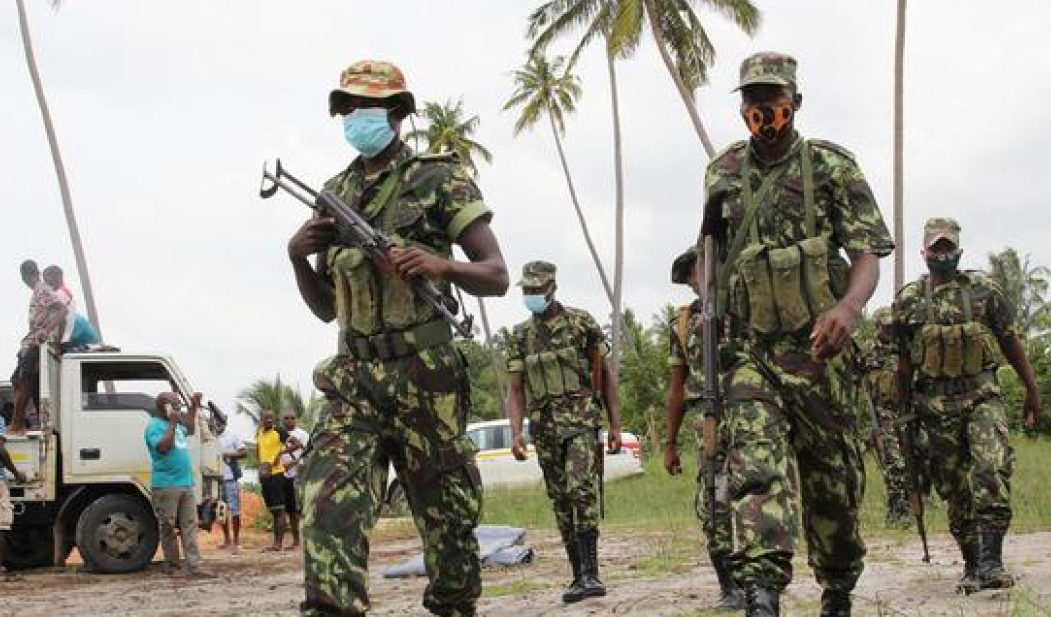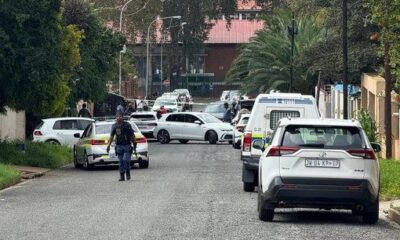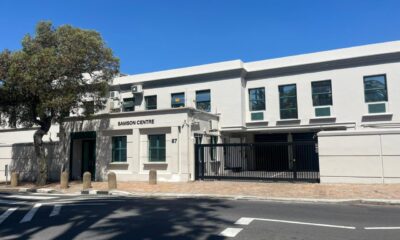
Banner

Terror-linked financing and Islamic State returnees ring alarm bells
Terror financing is a reality in South Africa, as more and more evidence comes to light of Islamic State (IS) sympathisers and terror activists on home-grown soil involved in funding terror here and abroad.
“There’s definite cause for concern, but it’s hardly surprising,” said Professor Hussein Solomon from the department of political studies and governance at the University of the Free State.
“South Africa is a safe haven for terror-financing and terror-related activities because the South African government continues to turn a blind eye to this and our security services are incompetent and politicised,” he said.
This concern, coupled with the worrisome number of IS returnees to South Africa following the defeat of the caliphate in Syria has terror experts sounding loud alarm bells.
Unnerving reports by TimesLive suggest that the government has since 2019 been involved in a “secret programme” to repatriate family members and former IS operatives who pledged allegiance and fought for IS in Syria.
The exact number of returnees isn’t known, but it’s reported to be considerable.
According to TimesLive, hundreds of South Africans have been allowed to return with no threat of prosecution, provided with new identity documents, and a means to resettle.
This is allegedly with the nod of home affairs departments, the department of international affairs and cooperation, and the state security agency, say reports, much to the dismay of the South African Police Services.
“South Africa has been used as a safe house for people to lie low and a place to solicit funding from parts of a sympathetic Muslim community towards the global Islamist cause,” said Solomon.
The investigation also claimed IS-linked extremists were exploiting South Africa’s small-scale financial services to fund terror attacks across the continent by moving money through spaza shops in the informal sector. There is reportedly an international counter-terrorism investigation into how small-scale South African money transfer companies, used by foreigners to send money home, are exploited by IS supporters. Evidence points to international terror groups using South Africa’s informal financial sector to shuffle money into other African countries.
Concerns are being raised as to whether the South African government and its security agencies have the political will or, more importantly, the know-how and expertise to deal with local terror financing as well as the monitoring of returnees, their deradicalisation, and reintegration into society. A lack of police resources in monitoring these returnees is of high concern, say insiders.
“Our inept security services have largely been used to fight factional political battles, they aren’t adequately equipped to deal with this,” said Solomon, “For instance, is there a programme to deradicalise these returnees? We don’t know. Are they under surveillance for an extended period of time to ensure they don’t plan some sort of attack?”
IS sympathisers and terrorist cells operating in South Africa are thought to be financing the Mozambique insurgency in various ways, including through the proceeds of organised crime.
Terror expert Jasmin Opperman told the SA Jewish Report, “Terror financing is happening in South Africa. It might not be on the same grand scale as other countries, but it’s a concern nonetheless.”
“Money is moving. There are flows of money from South Africa, and it’s difficult to prove and ascertain where the money lands up,” she said.
She said it was understood that financing occurred through various methods from informal online virtual payments to methods used by organised crime gangs.
She said extremists worked with organised crime syndicates and used their sophisticated money laundering systems.
Stephen Goldberg, the vice-chairperson of the Community Security Organisation (CSO) in Gauteng, told the SA Jewish Report that financial facilitation of terror in the country was “a real concern”.
“The infrastructure of terror financing is well-established and deeply rooted here. The combination of a sophisticated, well-functioning financial system with weaknesses in law enforcement and the lack of financial regulation makes South Africa a very attractive destination for terror-related activity,” he said.
“Unfortunately, this makes us more vulnerable. The United States [US] is putting pressure on the South African government to deal with terror-related money laundering and other forms of terror financing, and this pressure may be seen by extremists as the South African state acting against them, which they might respond to.
“It’s also extremely concerning that former IS operatives are being allowed to come back to South Africa without any consequences. These are people who have acted on terror ideology abroad and have returned with no apparent deradicalisation programmes in place.
“There are serious doubts as to whether the state has the capacity to monitor these people 24/7 and I don’t think it’s a stretch to say that some of them still hold radical views and might want to act on them.”
The Jewish community, Goldberg said, was in a fortunate position in that it had been building security infrastructure for many years.
“We have the CSO and a reasonably high level of security at all our installations. We continue to build on this, and must continue to be vigilant as a community.”
Earlier this year, US authorities identified four ISIS “financial facilitators” in South Africa. The US exposed key ISIS and ISIS-M (Mozambique) supporters who raised revenue for ISIS and exploited South Africa’s financial system to facilitate funding for ISIS branches and networks across Africa.
Four men living in South Africa were identified by the US as allegedly being involved in terrorist activities across the country and on the wider African continent. Their names have been widely circulated.
The four have been sanctioned (blocked from doing business in the US) by the US government for their alleged links to recruitment, kidnapping, extortion, and robberies committed to assist terrorist organisations financially.
They have been red flagged as using South Africa’s financial system to fundraise and facilitate funding for ISIS networks, according to OFAC (the Office of Foreign Assets Control).
It’s believed that the US is working with its African partners to try dismantle these illicit financial-support networks.
Jevon Greenblatt of the CSO said earlier this year, “The CSO has been warning about and preparing for the growing influence and mobilisation of ISIS in Africa and South Africa for a number of years. This evidence started emerging from before the arrest of the Thulsie Twins, and includes the numerous and often highly publicised incidents of foiled and successful attacks and criminal activity carried out by these cells within our borders.
“There’s also more than enough chatter and anecdotal evidence pointing to a strong link between cells in South Africa and the insurgency in Mozambique and elsewhere,” Greenblatt said.
“Remember, ISIS warned South Africa not to get involved in Mozambique. We don’t believe that this was an idle threat, but rather based on its confidence in the local infrastructure that exists that can be called upon to act when the time is right.”
The US said ISIS is attempting to expand its influence in Africa through large-scale operations “in areas where government control is limited”.
The question is whether South Africa can get a grip on these ISIS branches in Africa that rely on local fundraising schemes such as theft, extortion of local populations, and kidnapping for ransom, as well as financial support from the ISIS hierarchy. Time will tell.










